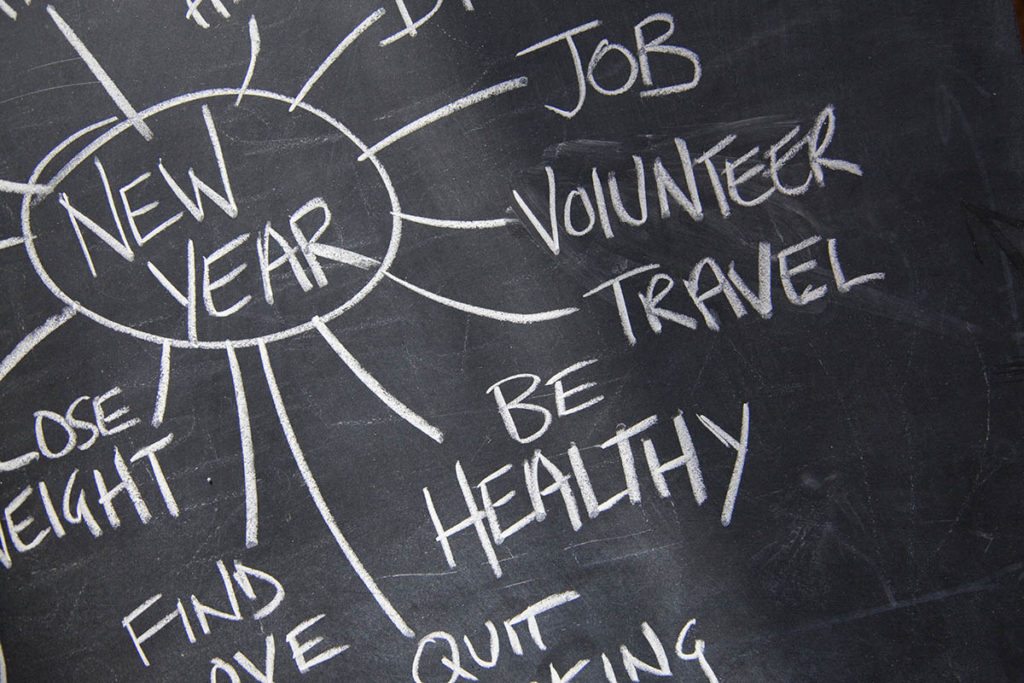Instead of making lofty promises to lose weight this New Year, you can be much more successful if you focus on changing your behavior. It’s a slightly different way of setting personal goals that fosters success and offers sustainable results.

The Importance of Behavior Change
The reason most resolutions aren’t achieved, or are only short-lived, is because we don’t define what will change in our behavior to accommodate the change we seek. Our goals are often vague and unstructured, or do not define actionable steps. Sure, you can eat healthy and exercise occasionally, and you may lose 20 pounds, but it is common to plateau and find yourself wanting to give up. In this instance, the goal did not clearly define how change will take place.
Set SMART Goals
The most effective goals are Specific, Measurable, Achievable, Realistic and Timely. I encourage all my patients to form SMART goals because consistency in how we define what we want goes a long way toward staying on track. For example, if your primary desire is to lose weight, a SMART goal in support of this desire would be to keep a food journal and write down everything you eat, each day, for a week (perhaps with a specific calorie goal in mind). Or, if you desire to get in shape, a SMART goal would be to walk for 30 minutes at least three times per week before work.
Start small. Sometimes just being aware of our weight can help foster the motivation we need to change our behavior. Keeping a daily weight log helps you understand the reasons for changes in your weight over time and can give you the insight necessary to make a change.
Once you have your SMART goal, take steps to monitor your behavior as if you were a scientist. Keep a daily chart in a highly visible place and track each behavior that supports reaching your goal. On the days you were unable to engage in that behavior, reflect on why you think you struggled that day and write it down. Awareness is the key to coming up with solutions. Learning to use this approach also means that, as new challenges arise, we have the knowledge and experience to address them.
Plan for Slips
It would be unrealistic if we did not anticipate slips, or lapses, as we work on building new behavior. In fact, evidence suggests that these setbacks may even be essential for lasting change. The most important thing is not to be hard on yourself when slips happen. Reflect on what contributed to the slip and find ways to navigate through the challenges. Build up a positive way of thinking and keep moving toward your goal.
Reward Yourself
Define what success looks like for you and reward yourself for the behaviors that support your goal. It is often helpful to identify options that are not food-related to use as reward. For example, at the end of the week if you met your goal six of the seven days, treat yourself to a movie, pedicure, shopping or whatever you like. The reward keeps you motivated and makes a big plan much easier to achieve when you look at it on a smaller scale.
Seek Support
If you find yourself continually coming up short on weight-loss goals, or if the idea of starting a weight-loss plan is too overwhelming, you may want to consider enlisting some support. Your doctor is usually a good place to start. Health-care providers can advise you on diet, physical activity and medications that might help. They also can provide you with the health advantages for losing weight, which can be motivating.
You also may want to consider a weight management support group. I’ve seen the success of such groups because they provide information, encouragement, accountability and camaraderie. It’s empowering when you are successful and when other people recognize that success.
Jonathan Mitchell, Ph.D. is a visiting assistant professor at the University of Central Florida and a clinical psychology postdoctoral fellow at UCF Health. He works with patients individually and in group formats to help them achieve their health goals through science-based behavior change strategies.



